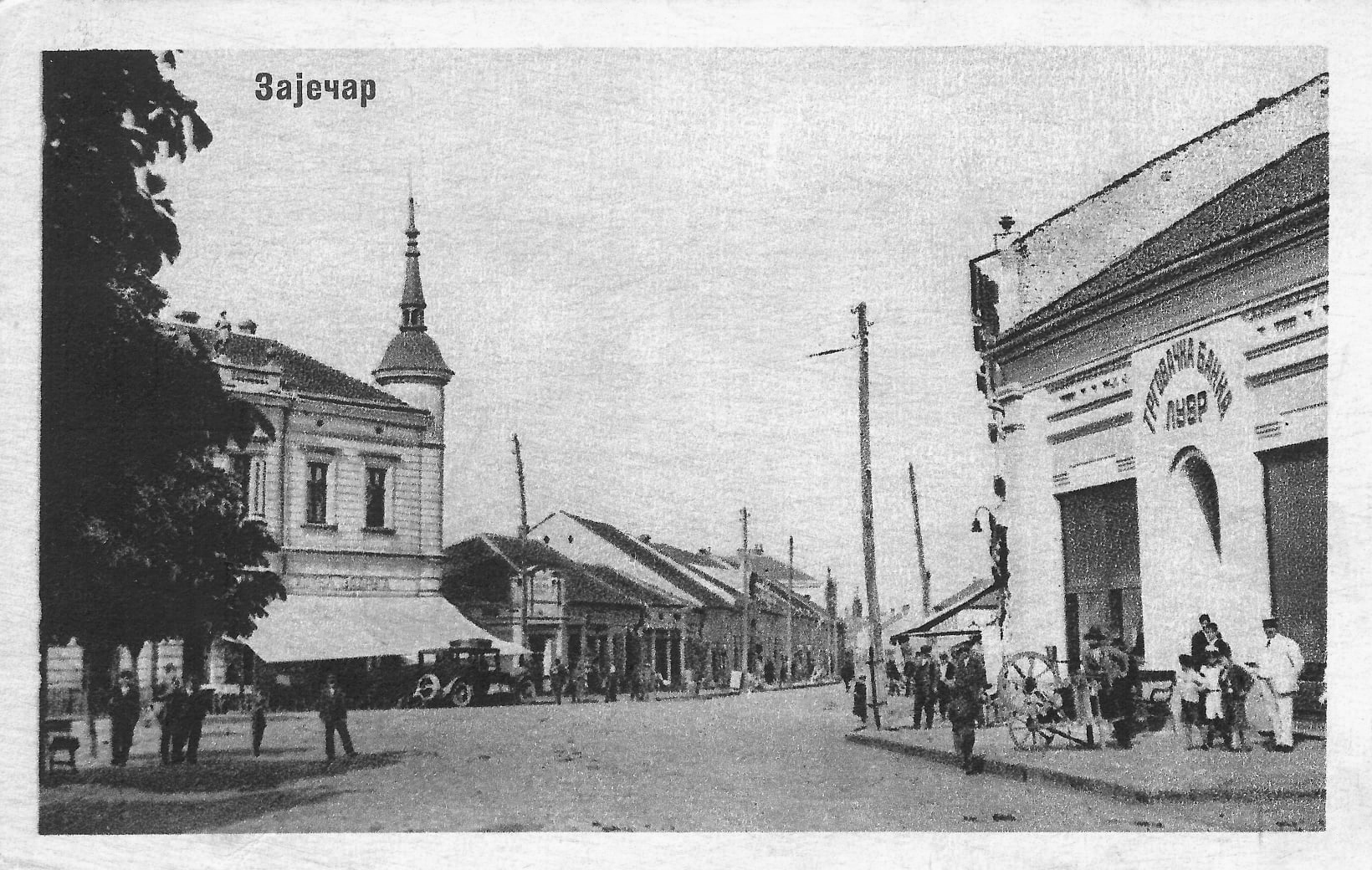
The wealthiest merchants of Zaječar founded the Commercial Bank "Louvre" by combining their individual capital. Beside the usual banking transactions, the bank traded in various goods and services and soon gained monopoly on trade in Zaječar and its surrounding.
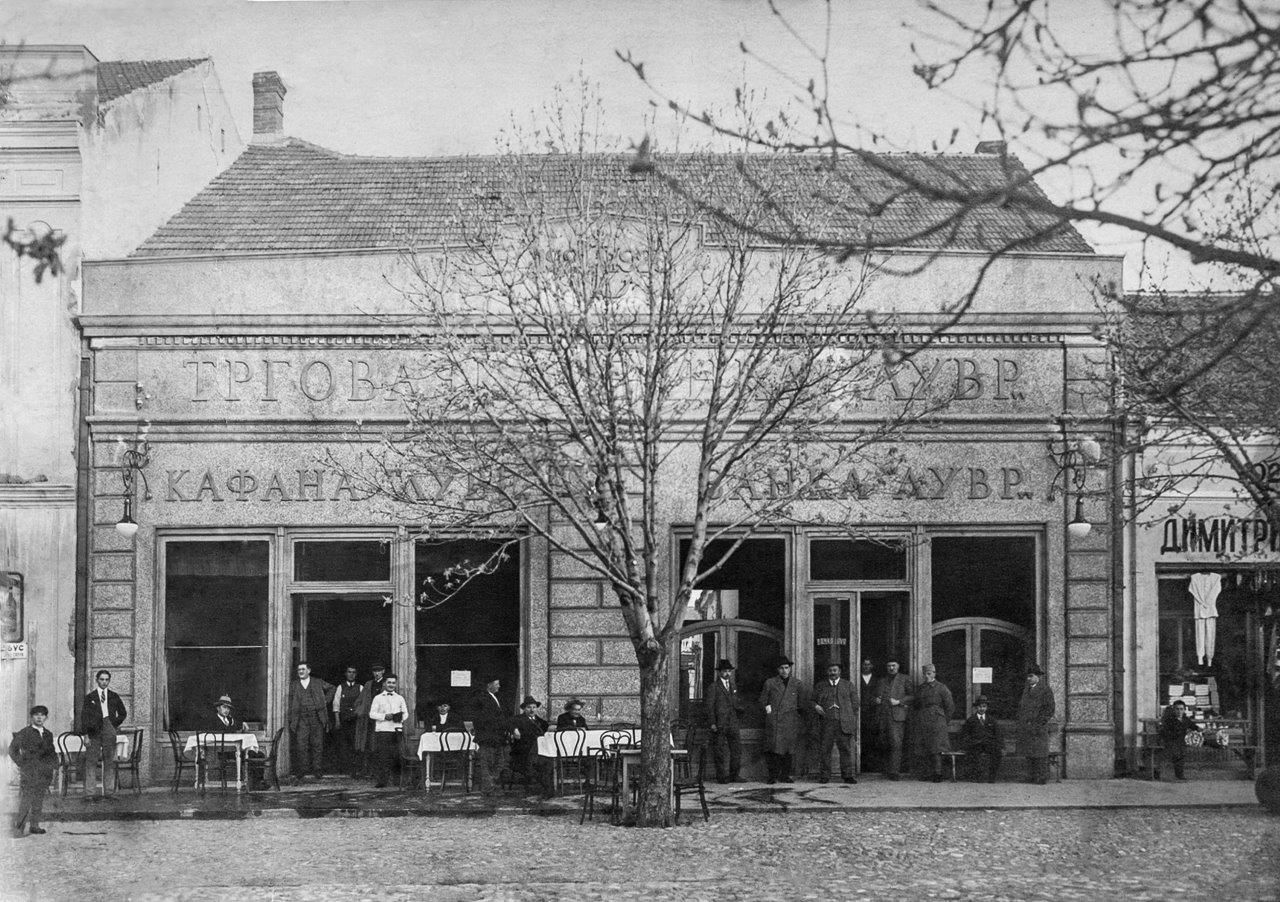
The Commercial Bank "Louvre" erects a new building at the very center of town and, next to its offices, it opened a kafana which in time grew to become a hotel.
The Bank digs a clean water well in Dubrovačka St., next to the entrance into the former hotel "Louvre" and its water was used in hotel bathrooms and as a public fountain at the street.
After 25 very successful years, the Bank becomes state ownership after the World War II and hence ceased to exist.
After World War I there was a strong need for new goods and bank loans in order to rebuild the country, therefore five new private banks were founded in Zaječar, one of them The Commercial Bank “Louvre”. It was founded in 1919 by the Zaječar wealthiest merchants and capitalists who joined their individual assets: Nikola Stamenović, Đorđe V. Jovanović, Đoka Milovanović, Aleksandar P. Živanović, Jovan M. Marjanović, Marko C. Petković, Svetozar S. Milojković, Todor M. Jovanović, Milan Jovanović i Svetolik Mišković.
Beside the usual banking transactions, this bank also dealt in all other trading businesses and services: industrial, real estate, mining, agriculture, transport, etc. It sold goods, built storages, cattle barns, traded in any kind of objects and their taxation. Soon after it was founded, it held the monopoly over trade in Zaječar and its surrounding. It imported the goods directly from Italy, Germany, Austria and Poland. From 1920-1926 it was located at the current Liberation Square, in the building previously occupied by the famous kafana “Europe”, and from 1926 occupied by the newly founded bank "RiS", created by Nikola Stajković and Stevan Rajković necessary for the trade of their newly founded industrial mill.
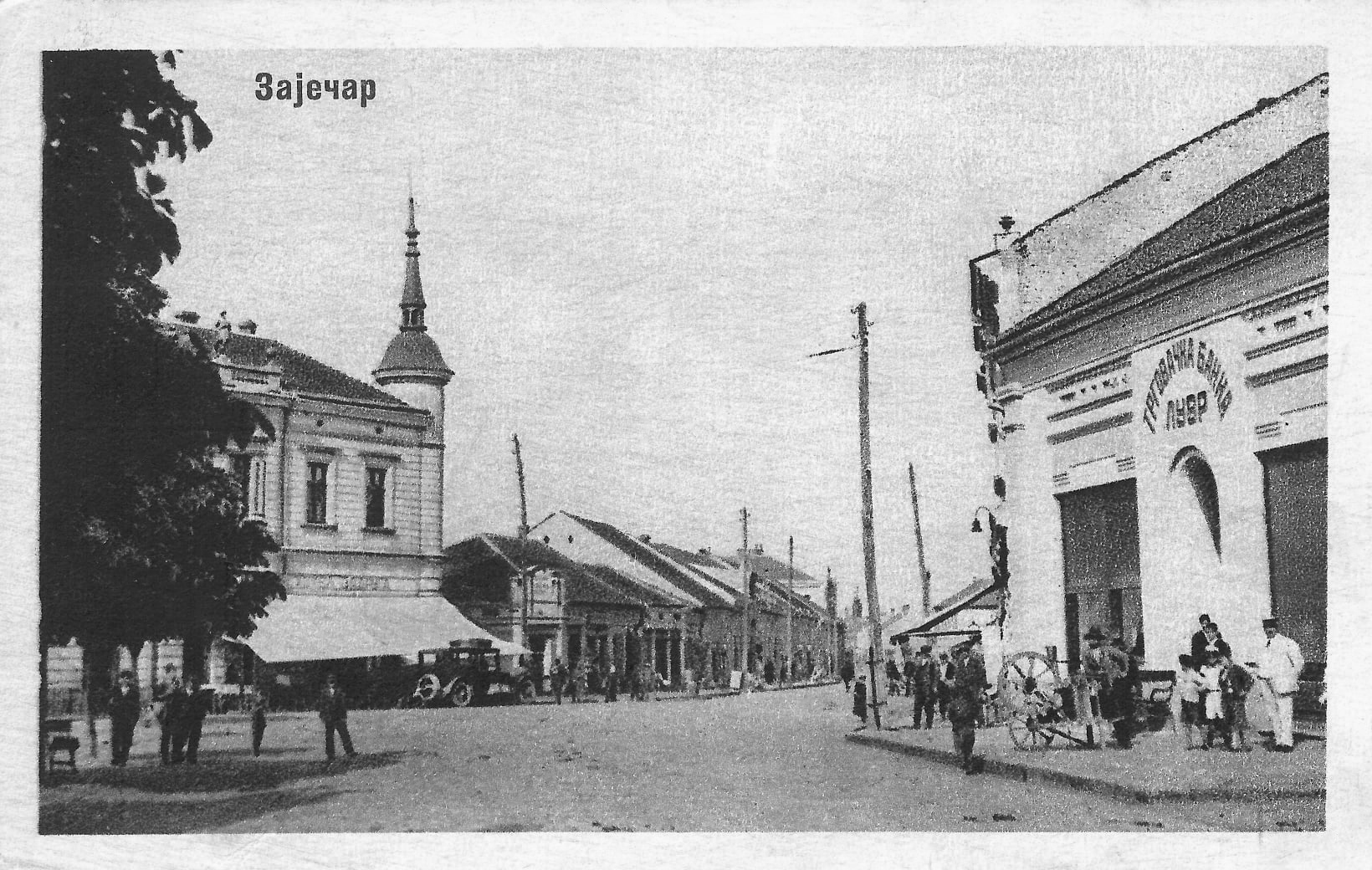
In 1926 The Commercial Bank “Louvre” liquidated all trading business and focused solely on banking transactions. In the coming years, it was known as one of the strongest private banks in Zaječar. In 1928 it built its own building at the center of the town and, next to its offices, it held a kafana that soon grew to become a hotel. It also owned stores in Pačićeva and Karađorđeva Street.
In 1935 the Bank built a drinking water fountain located at the wall next to the hotel entrance, and whose water was used in hotel bathrooms and as a public well at the street.
The Commercial Bank “Louvre” was led by very successful businessmen and it survived all major global economic crises before World War II. After the war, all its assets were nationalized and became state-owned hence the bank seized to exist. The Hotel became home to many people, currently in a dire state, while the former bank and kafana buildings were rented out by different companies up until today.
SOURCES:
Svetislav Žikić, „Bankarstvo“. Zaječar i okolina. Zaječar, 1974, pp.277-278.
Dr Miodrag Velojić, Zaječarske javne česme. Zaječar, 2015.
Suzana Antić, Jelica Ilić, Nina Pogarčić, Zaječar čudesna priča. Iz života u Zaječaru 1466-2006. godine. Narodni muzej "Zaječar", Zaječar, 2013.
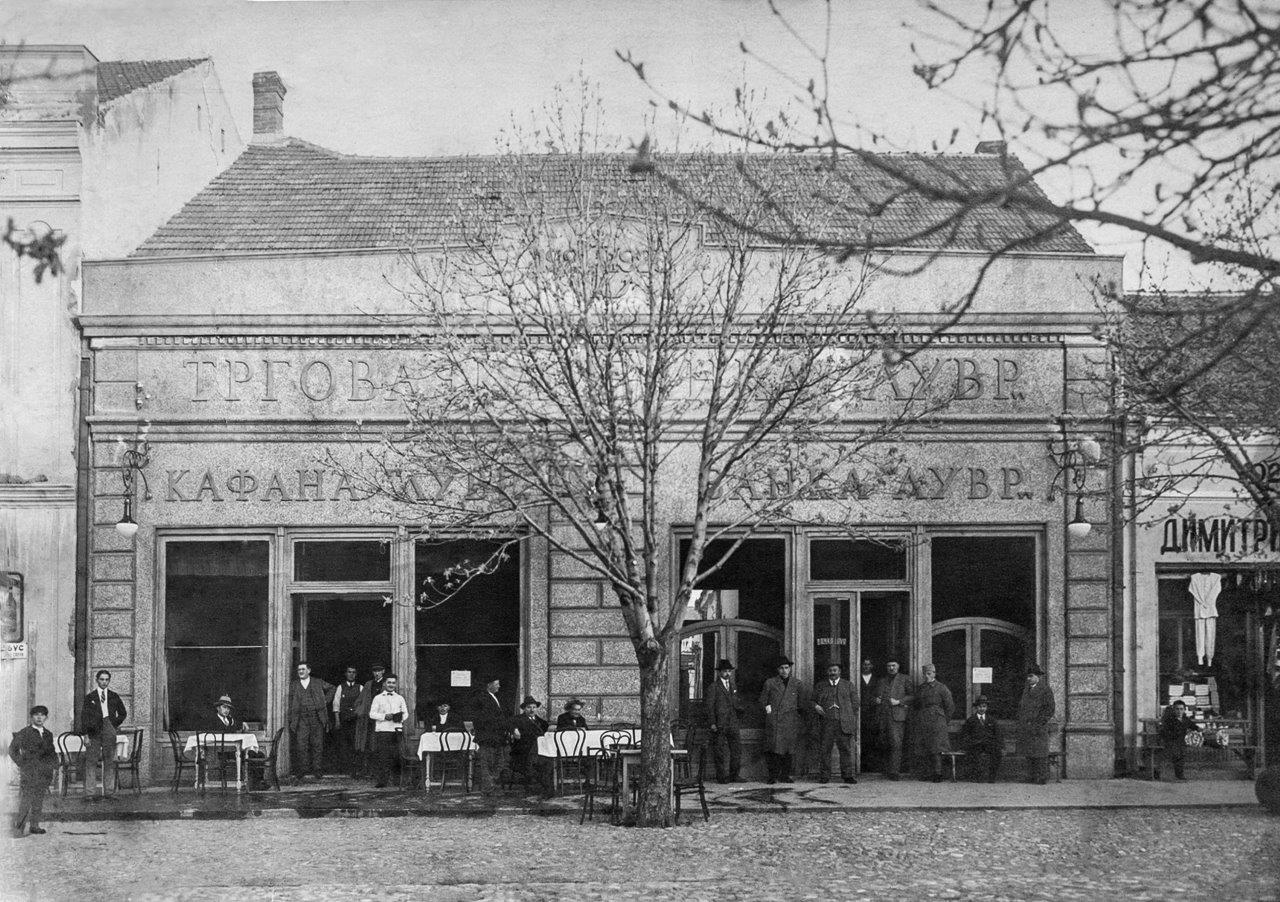
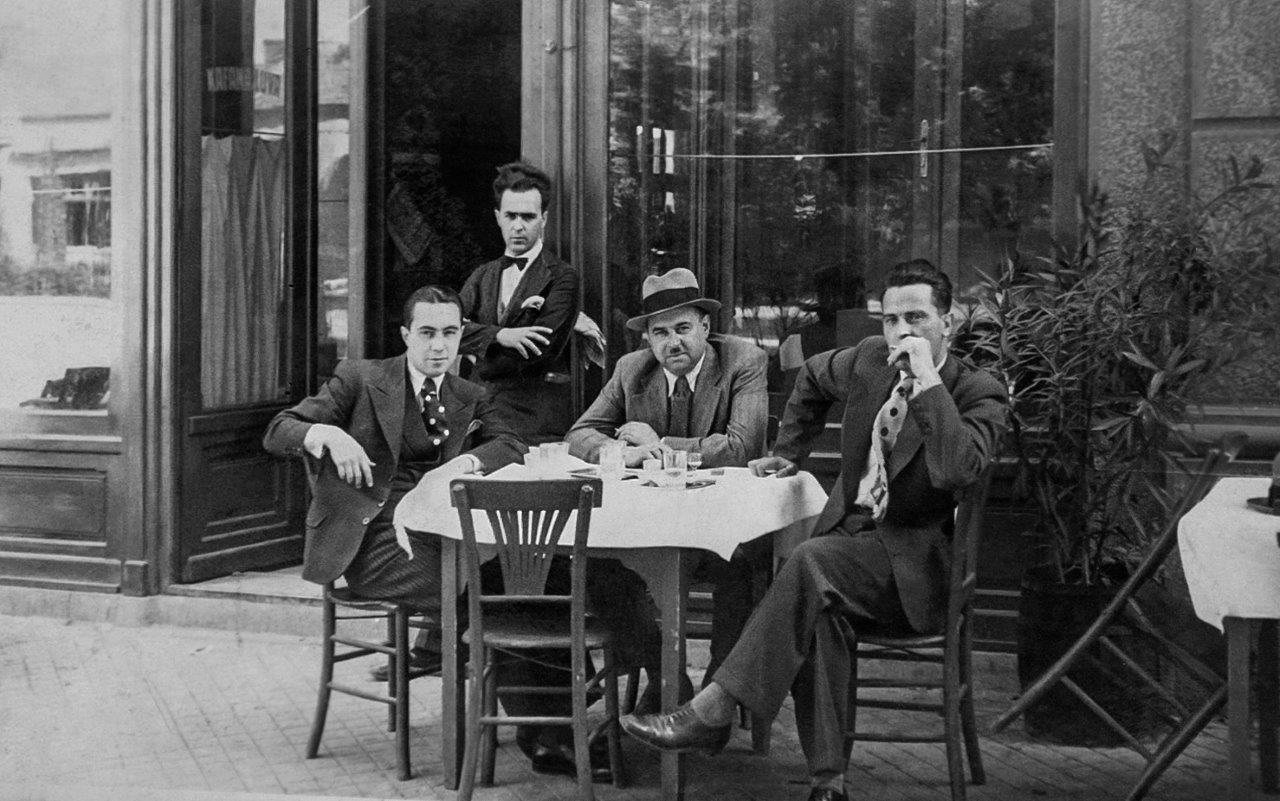
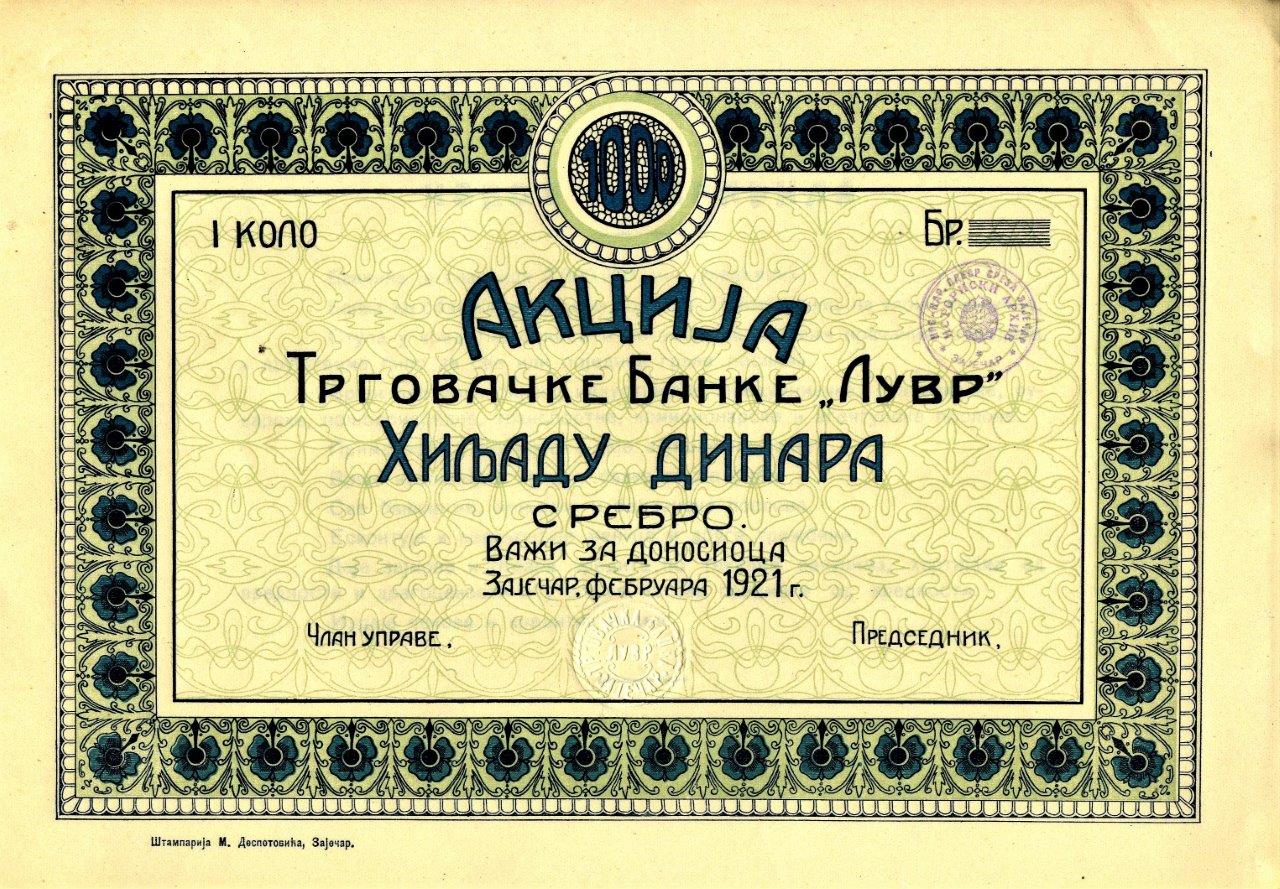
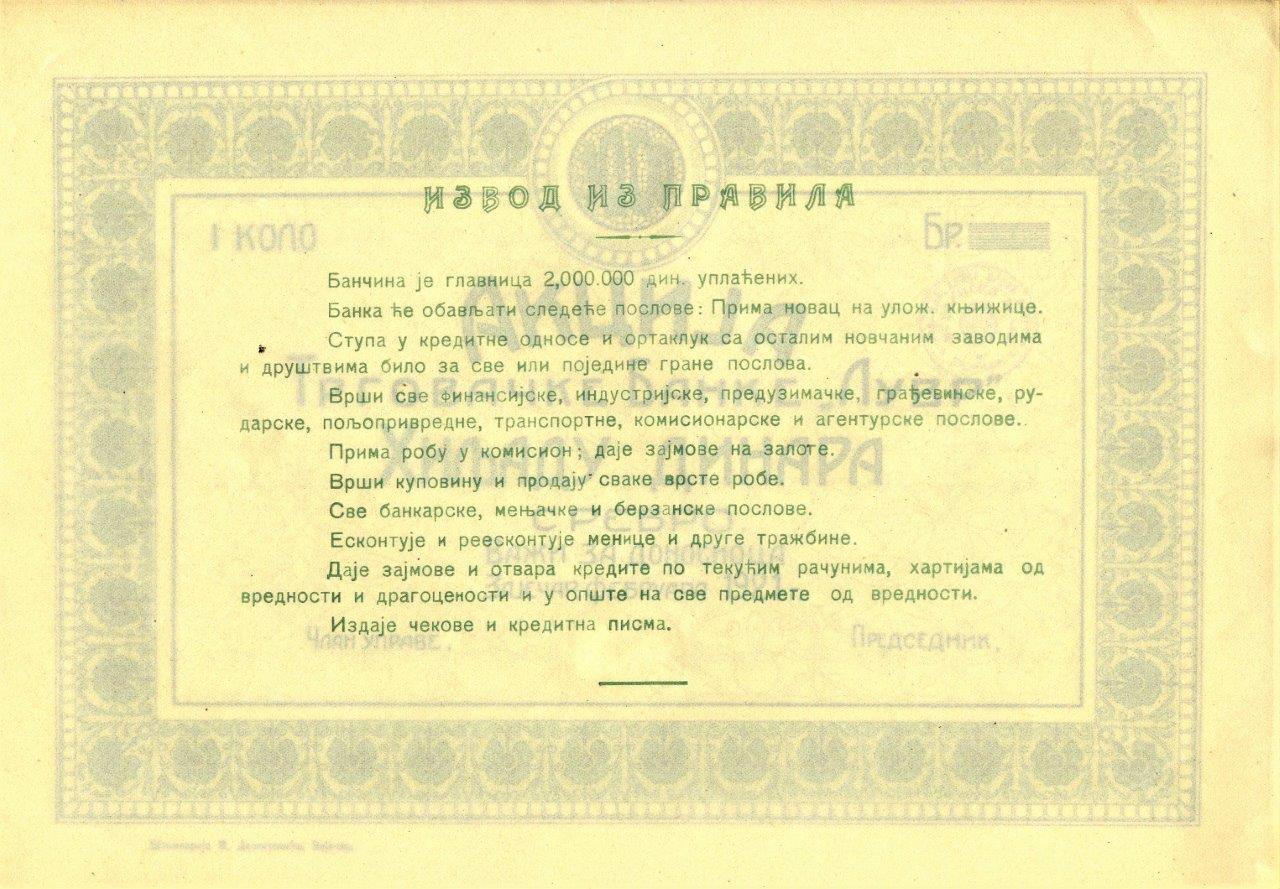
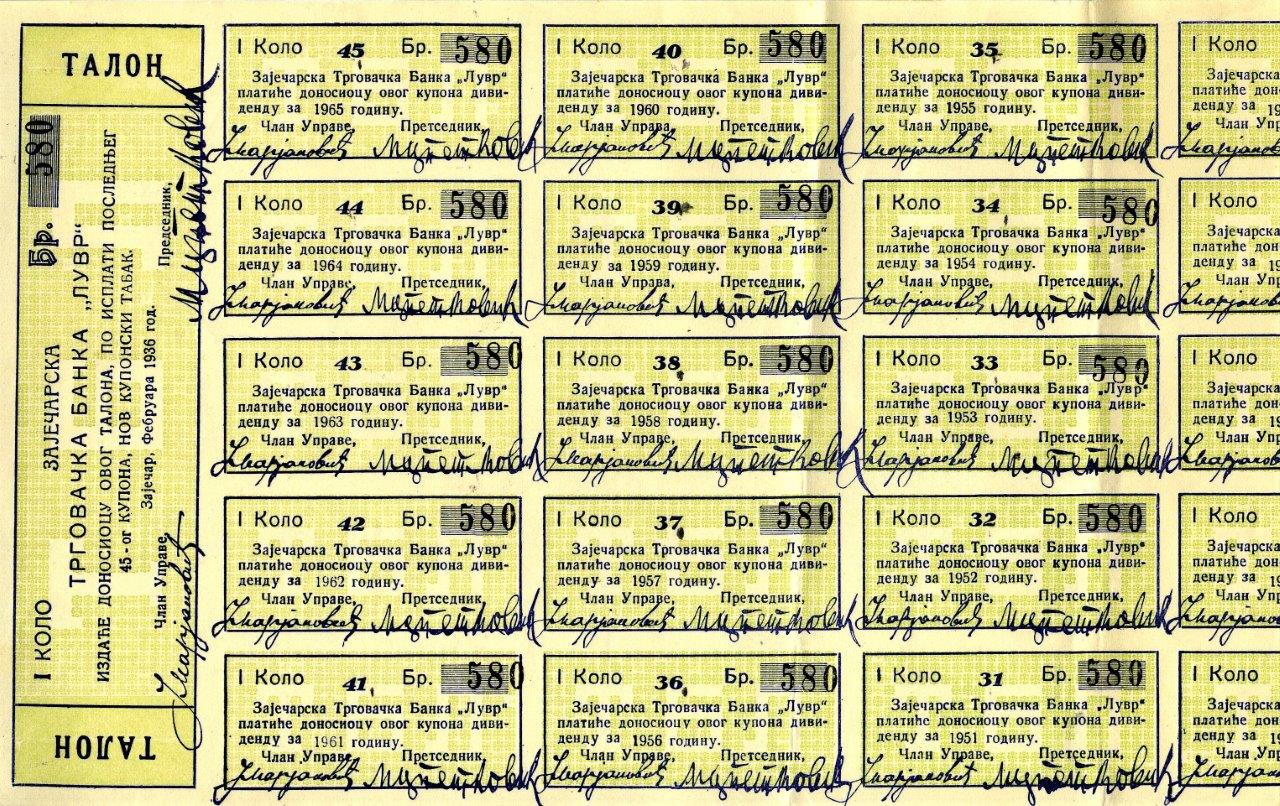
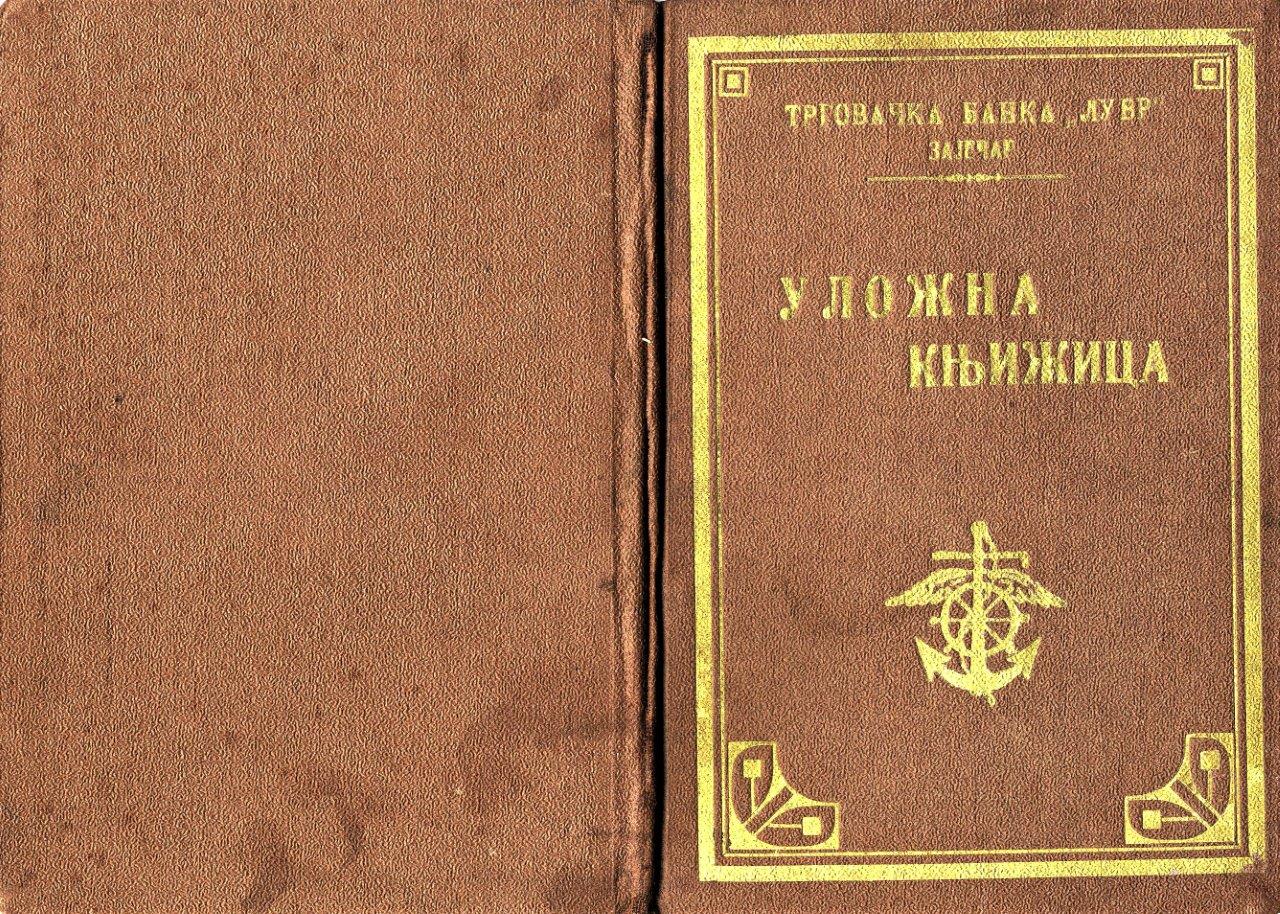
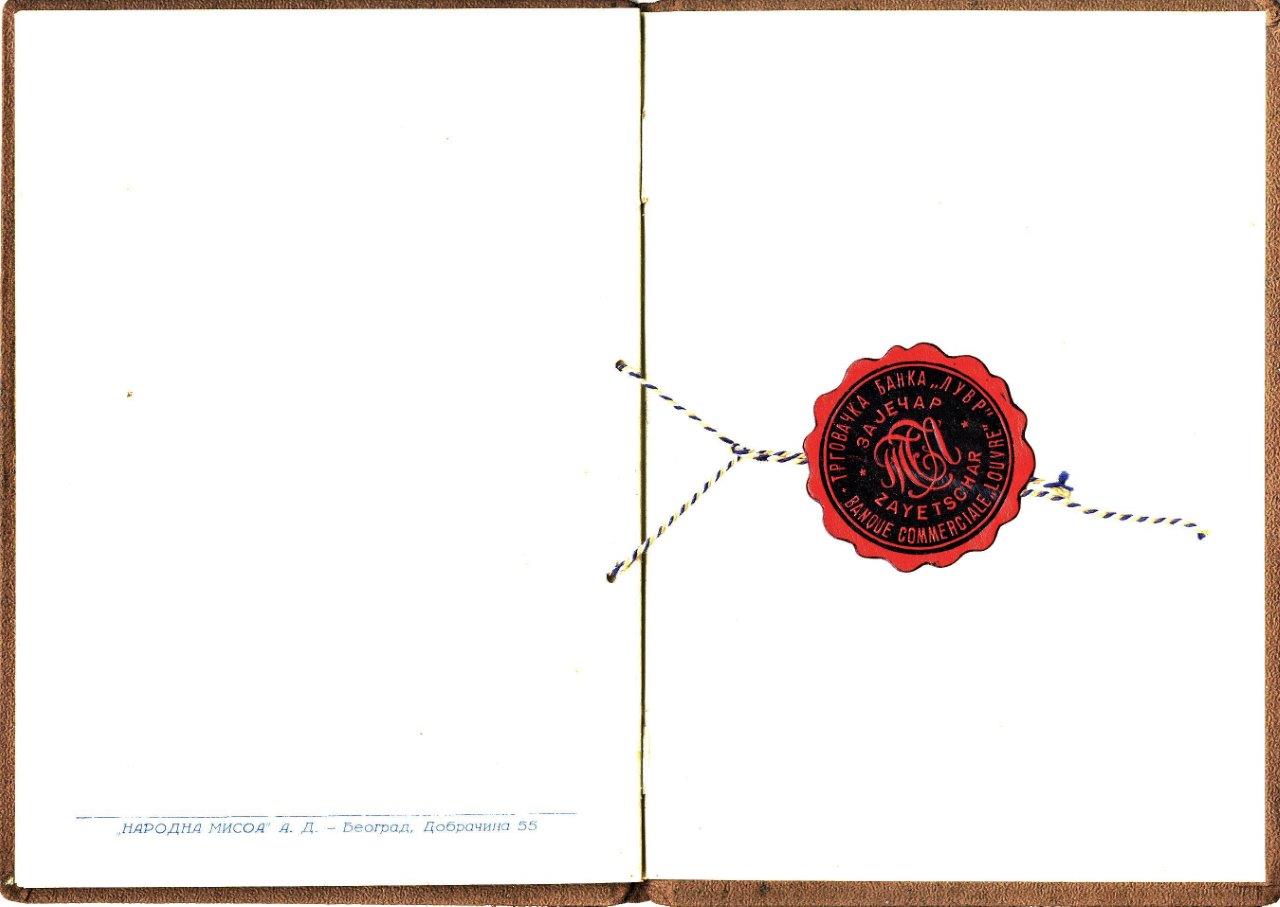
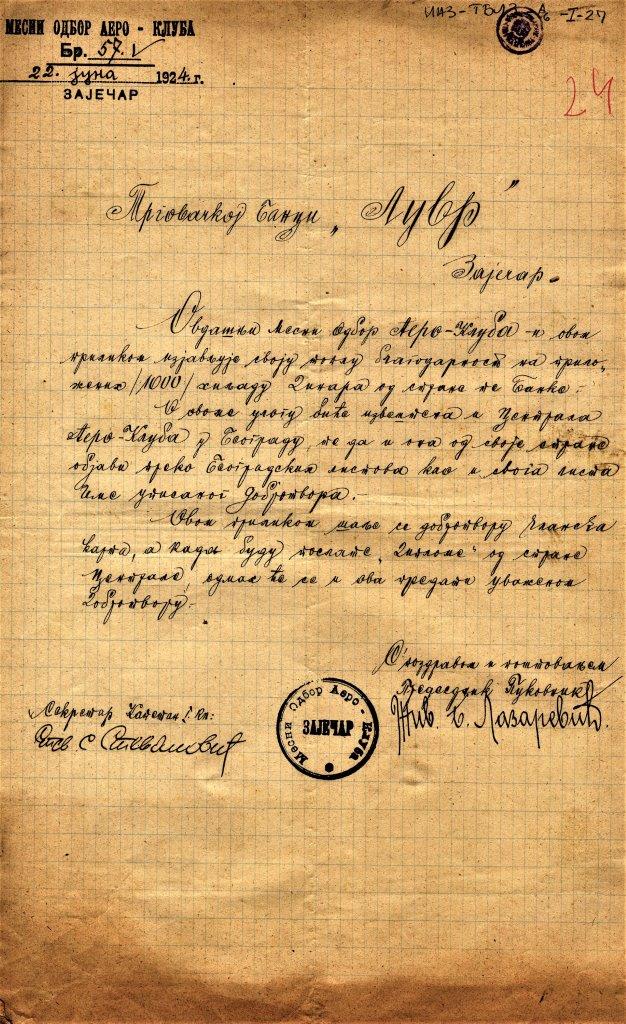
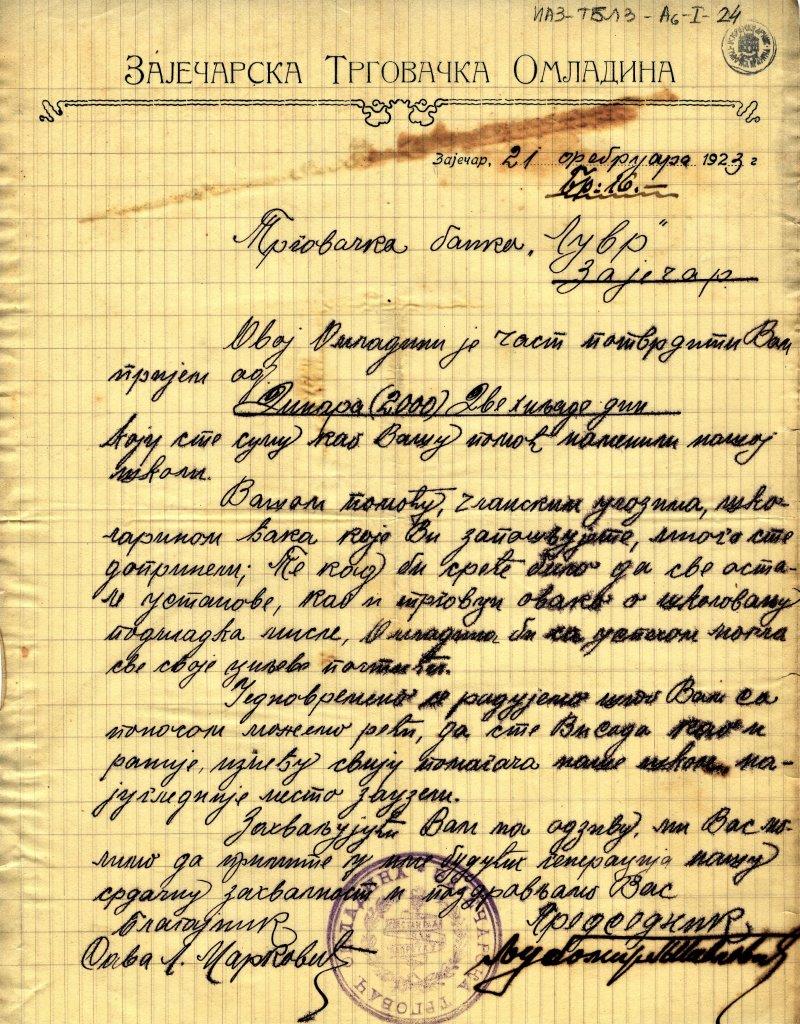
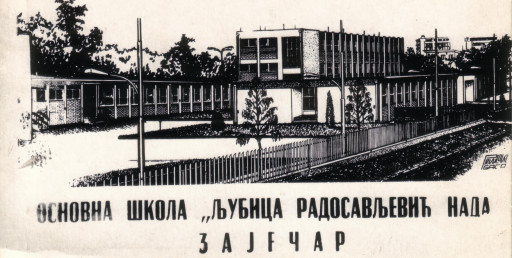
Primary school "Ljubica Radosavljević Nada" was officially opened on September 7th 1972. It was desi...
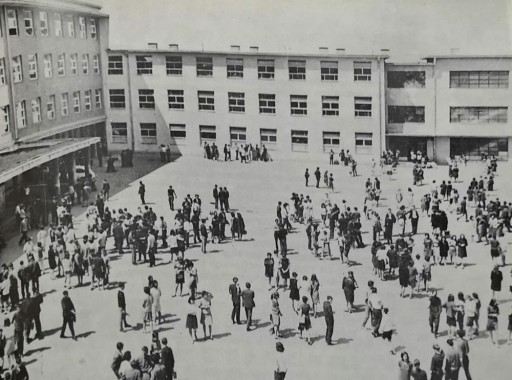
Zaječar was one of the first towns in Serbia with a high school – on August 22, 1836 the “Big School...
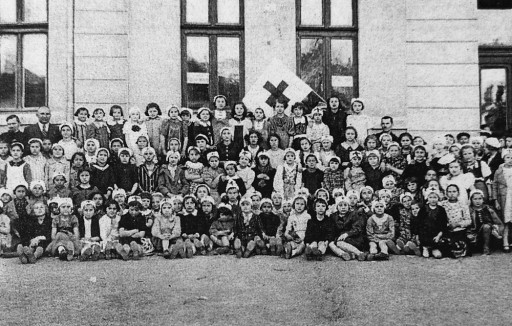
As part of the Guildhall complex, the building was erected in 1897 by the Traders’ Society and gave...
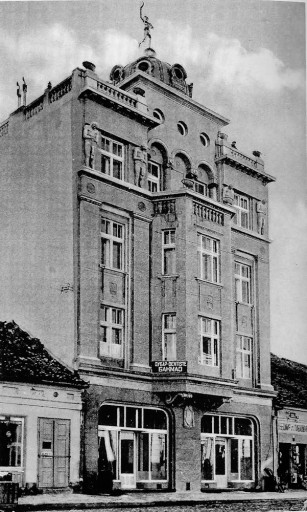
When it was built, Rajković & Stajković Palace was the tallest building in Zaječar. There were two s...